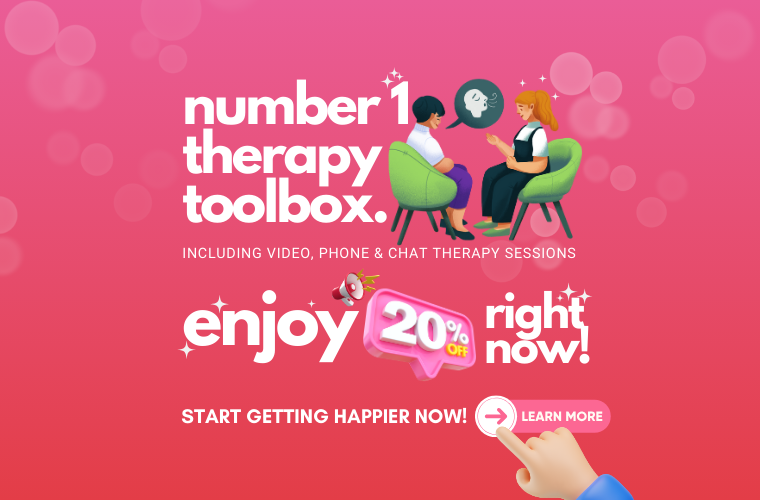Many people struggle to recognize and describe their emotions, a challenge known as alexithymia. Our easy-to-use Alexithymia Test helps you understand your emotional tendencies and offers tailored advice for enhancing your emotional awareness and relationships.
How Is Alexithymia Measured?
Overview of Alexithymia Test
Alexithymia can be assessed using several psychological tests. One of the most widely used is the Toronto Alexithymia Scale (TAS-20), a self-report questionnaire designed to measure the three main facets of alexithymia:
- Difficulty Identifying Feelings (DIF): Challenges in recognizing one’s own emotions.
- Difficulty Describing Feelings (DDF): Difficulties in describing feelings to other people.
- Externally-Oriented Thinking (EOT): A tendency to focus on external events rather than internal experiences.
Administering the Alexithymia Test
The TAS-20 is typically administered in a clinical setting or can be self-administered. It consists of 20 items and takes about 10 minutes to complete. Respondents are asked to rate how much they agree with each statement on a scale from 1 (strongly disagree) to 5 (strongly agree).
Understanding Your Alexithymia Test Results
Interpreting Scores
Scores on the TAS-20 can range from 20 to 100, with higher scores indicating a higher level of alexithymia. The thresholds are generally set as follows:
Score Interpretation:
- 20-35: Very Low Alexithymia. You have a very high emotional awareness.
- 36-50: Low Alexithymia. You have a good understanding of your emotions and can usually identify and describe them.
- 51-65: Moderate Alexithymia. You occasionally struggle with identifying and describing your emotions.
- 66-80: High Alexithymia. You often have difficulties in recognizing and communicating your emotions.
- 81-100: Very High Alexithymia. You have significant difficulties with emotional awareness and expression, which might be noticeable in daily interactions.
What to Do If You Score High
A high score on an alexithymia test suggests difficulties with emotional awareness, which might benefit from professional guidance. Consulting with a psychologist or therapist can help develop better emotional skills and improve communication and relationships.
The Role of Therapy in Managing Alexithymia
Cognitive Behavioral Therapy (CBT)
CBT is often effective in helping individuals with alexithymia. The therapy focuses on helping patients identify their emotions and the thoughts and behaviors associated with them, which can improve emotional understanding and regulation.
Mindfulness and Relaxation Techniques
Mindfulness exercises can also be beneficial. These practices help individuals become more aware of their present emotions and thoughts without judgment, aiding in better emotional recognition and expression.
Enhancing Emotional Intelligence: Tips and Strategies
Journaling and Self-Reflection
Regular journaling can enhance emotional identification by encouraging a habit of reflecting on daily experiences and the emotions they evoke. This practice can gradually help those with alexithymia become more attuned to their emotional states.
Seeking Feedback
Engaging with close friends or family members about one’s emotional expressions can provide valuable feedback and insights, helping to clarify and label emotions more accurately.
Educational Workshops
Participating in workshops or reading books on emotional intelligence can provide tools and knowledge to understand and manage emotions.
Understanding Alexithymia: What It Is and How It Affects Us
What is Alexithymia?
Alexithymia is a subclinical phenomenon involving difficulties in identifying and describing feelings. People with alexithymia often struggle with distinguishing between feelings and the bodily sensations of emotional arousal. Additionally, they may have a limited imagination and a concrete, realistic way of thinking.
The Importance of Recognizing Alexithymia
Recognizing alexithymia is crucial because it can impact emotional well-being and interfere with interpersonal relationships. It can also have implications for mental health, as it is commonly seen in association with other psychological disorders such as depression and anxiety.
How to Use the Results
If your score indicates you are alexithymic or you find yourself struggling with emotional awareness, it may be beneficial to seek professional advice from a psychologist or therapist. They can offer strategies and therapies that improve emotional identification and expression.
Note
This questionnaire is a simplified tool meant for general self-assessment and not a diagnostic instrument. A high score should encourage further exploration with a professional, but it does not diagnose alexithymia on its own.
Remember, understanding and managing emotions is a journey that varies greatly from person to person. No matter your score, taking steps to improve or maintain your emotional health is beneficial. If you ever feel overwhelmed, reaching out for professional help is a wise and courageous step.
Similar or associated disorders linked to Alexithymia can take:
- Question of
I find it hard to identify what I am feeling.
- Strongly Disagree
- Disagree
- Neutral
- Agree
- Strongly Agree
Correct Wrong
- Question of
I struggle to find the right words for my feelings.
- Strongly Disagree
- Disagree
- Neutral
- Agree
- Strongly Agree
Correct Wrong
- Question of
I don’t know what’s going on inside me.
- Strongly Disagree
- Disagree
- Neutral
- Agree
- Strongly Agree
Correct Wrong
- Question of
I am confused about what emotion I am feeling.
- Strongly Disagree
- Disagree
- Neutral
- Agree
- Strongly Agree
Correct Wrong
- Question of
I find it hard to distinguish between different emotions.
- Strongly Disagree
- Disagree
- Neutral
- Agree
- Strongly Agree
Correct Wrong
- Question of
It is difficult for me to reveal my feelings to others.
- Strongly Disagree
- Disagree
- Neutral
- Agree
- Strongly Agree
Correct Wrong
- Question of
I can describe my feelings easily.
- Strongly Disagree
- Disagree
- Neutral
- Agree
- Strongly Agree
Correct Wrong
- Question of
I prefer to keep my emotions to myself.
- Strongly Disagree
- Disagree
- Neutral
- Agree
- Strongly Agree
Correct Wrong
- Question of
When asked about my feelings, I can’t find the right words.
- Strongly Disagree
- Disagree
- Neutral
- Agree
- Strongly Agree
Correct Wrong
- Question of
I find talking about my feelings uncomfortable.
- Strongly Disagree
- Disagree
- Neutral
- Agree
- Strongly Agree
Correct Wrong
- Question of
I prefer talking about daily events rather than my feelings.
- Strongly Disagree
- Disagree
- Neutral
- Agree
- Strongly Agree
Correct Wrong
- Question of
I focus more on what I’m doing than on what I’m feeling.
- Strongly Disagree
- Disagree
- Neutral
- Agree
- Strongly Agree
Correct Wrong
- Question of
I think about my problems rather than my feelings.
- Strongly Disagree
- Disagree
- Neutral
- Agree
- Strongly Agree
Correct Wrong
- Question of
I like to analyze problems rather than discuss my feelings.
- Strongly Disagree
- Disagree
- Neutral
- Agree
- Strongly Agree
Correct Wrong
- Question of
I find practical tasks more straightforward than dealing with emotions.
- Strongly Disagree
- Disagree
- Neutral
- Agree
- Strongly Agree
Correct Wrong
- Question of
I prefer not to get too emotional.
- Strongly Disagree
- Disagree
- Neutral
- Agree
- Strongly Agree
Correct Wrong
- Question of
People tell me to express my feelings more.
- Strongly Disagree
- Disagree
- Neutral
- Agree
- Strongly Agree
Correct Wrong
- Question of
I find movies and books about emotions uninteresting.
- Strongly Disagree
- Disagree
- Neutral
- Agree
- Super Agree
Correct Wrong
- Question of
Emotional situations leave me perplexed.
- Strongly Disagree
- Disagree
- Neutral
- Agree
- Super Agree
Correct Wrong
- Question of
I don’t understand why people get so emotional.
- Strongly Disagree
- Disagree
- Neutral
- Agree
- Super Agree
Correct Wrong


